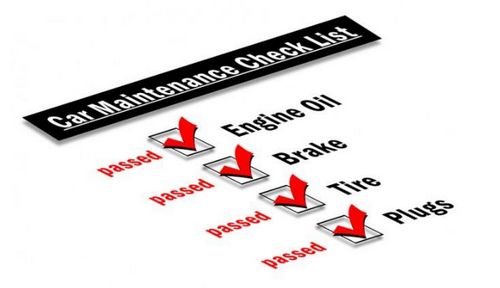No matter how old your car is, you’ll want to be diligent about maintenance to ensure it continues to perform well. Simply put, it’s impossible for a vehicle to perform optimally if you’re not willing to put in the time and money to keep it well-maintained.
Neglecting to maintain your vehicle is a sure way to damage your vehicle’s performance and will eventually result in the need for you to undergo expensive repairs. Even worse, not keeping up with the latest developments regarding your vehicle’s maintenance can eventually damage your engine and potentially force you to replace the car altogether.
Luckily, it’s not that difficult to keep your machine running smoothly, and all you need to do is make sure you perform all of the following maintenance tasks as necessary.
Change Your Oil and Oil Filter Regularly
Oil helps lubricate your engine’s components and protects them from damage from heat and friction. However, oil tends to lose some of its lubricating properties as it becomes dirty, and not changing the oil regularly can eventually damage engine components or damage the engine altogether.
Likewise, the oil filter helps prevent particles from damaging components. Over time, the filter will eventually become too dirty to do its job properly, meaning you’ll also need to replace the filter every once in a while.
The old rule of thumb is that you should change your oil and oil filter every 3,000 to 4,000 miles, but many newer vehicles can last longer between oil changes. For this reason, it is best to consult your owner’s manual and follow the recommended oil change schedule.
Check Your Tire Pressure
Keeping your tires inflated at the correct pressure is very important to keep your vehicle running smoothly and also to keep your vehicle safe. Under-inflated tires can dramatically decrease your vehicle’s fuel efficiency, while over-inflated tires run the risk of a dangerous blowout.
Therefore, it is recommended that you check your tire pressure at least once a month and always inflate your tires to the recommended pressure.
Make Sure Your Air Filter Is Not Clogged

Your engine needs a constant flow of fresh air to run optimally, and an air filter is an important component that filters the air to ensure particles don’t damage your engine. Over time, the air filter will eventually start to clog, which limits the amount of air flowing into the engine and thereby impairs its performance.
This means you want to check your air filter regularly and replace it any time it starts to look dirty.
Check Your Fluid Level
Oil isn’t the only important fluid your vehicle relies on for optimal performance. Coolant, transmission fluid, brake fluid, and power steering fluid are all important for keeping your vehicle running smoothly and safely. Because of this, you’ll also want to check the levels of these fluids regularly and be sure to add them as needed.
Most fluids are fairly easy to check, and you can find them how-to guide who can show you exactly how to check each kind of liquid.
Replace Your Fuel Filter
Similar to oil and air filters, fuel filters help filter impurities from your fuel to ensure they don’t damage your engine. Just like any other filter, the fuel filter will start to get dirty and clogged over time. When the fuel filter is dirty, it limits the amount of fuel flowing into the engine and can impair its performance.
At the same time, a dirty fuel filter will not filter out the dirt easily, and this dirt can damage your engine and reduce its performance.
Changing your fuel filter regularly is one of the easiest ways to keep your engine running smoothly and also helps prevent breakdowns.
Check Your Spark Plug and Spark Plug Wires
If your vehicle is equipped with spark plugs, it is also a good idea to replace the spark plugs and spark plug wires from time to time. Replacing spark plugs can improve engine performance as well as fuel efficiency, while replacing spark plug wires can help avoid performance issues such as misfiring.
Fortunately, spark plugs don’t need to be changed very often, and you can usually drive about 100,000 miles between replacements.
Flush Your Cooling System
Your vehicle’s cooling system helps protect the engine from extreme temperatures and can prevent overheating. Unfortunately, the cooling system will eventually become contaminated with corrosion and other particles, and these contaminants have the potential to clog the thermostat or radiator causing the vehicle to overheat.
Therefore, it is recommended that you flush your cooling system every year or two to ensure a clean system and avoid potential problems.
Flush All Your Liquids
In addition to flushing your coolant system, it is recommended that you rinse all other fluids occasionally to help keep your vehicle performing at its best.
Most experts recommend flushing your brake fluid at least once a year, and you’ll also want to rinse your power steering fluid and differential fluid occasionally.
Replace Your Transmission Fluid and Filter
Your transmission is one of the most delicate parts of your vehicle, and like many other systems, it relies on a steady supply of clean transmission fluid to perform optimally. Likewise, the transmission filter must be clean in order to properly filter out particles to prevent damage to the transmission. for this reason, most manufacturers recommend that your transmission is flushed and changed transmission fluid and filtered every 30,000 to 50,000 miles.
No matter how diligent you are about maintaining your vehicle, various components will start to wear out over time and will eventually need to be repaired or replaced. However, you can still work to extend the life of your vehicle and hopefully avoid or at least delay the need for costly repairs by being diligent and making sure to perform all necessary maintenance tasks.
Keeping your vehicle’s performance optimal and running smoothly isn’t difficult, but it does require you to pay attention and make sure you don’t neglect your vehicle’s maintenance.








